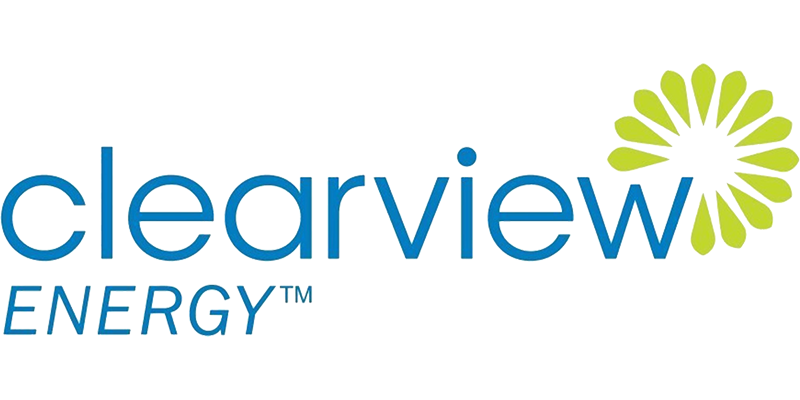Compare the Best Maine Electricity Rates
Find the lowest electricity rates in Maine.
Enter Your ZIP Code to Get Started
Rated 5/5
Based on over 41,000 reviews
20+
Years of Experience
40%
Save up to 40%
100+
Electricity Providers
Recommended Maine Electricity Plans
Electricity Suppliers in Maine
Compare The Best Maine Electricity Rates
We've researched the best providers and plans so you can find a great electricity rate in Maine
How Do I Start Utility Service In Maine?
Starting electricity service in Maine is easy and convenient. But because the state has so much wilderness, it's important to know what service area you reside in.
Main has two main investor owned utilities. Central Maine Power (CMP) principally serves the southern and coastal cities of Augusta, Brunswick, Lewistown, and Portland. Further east, Versant serves towns in eastern Maine that include Ellsworth, Bangor, and Caribou.
Once you know which utility serves the area you're in, just visit their web site listed below. It's easy and convenient to start up service.
Be ready to provide your address, move-in date, and identification. A deposit or credit check may be required.
You can also sign up for your My Account online to securely receive and view your bills as well as schedule payments online anytime.
How Do I Choose a Retail Energy Supplier?
Maine has a deregulated energy market so utility customers can choose a retail electric or gas supplier for the supply portion of their service. However, customers that do not chose a retail supplier will receive their electricity supply at their utility's Standard Offer Rate.
Competitive suppliers may offer fixed rates, different length terms, or renewable options. When you compare Maine electricity suppliers, you may find a third-party supplier may help you find a better rate than the default utility price that's also better suited to your needs.
What About My Bill and Service?
Your utility will send you only one bill each month. This includes the supply charges (based on your supplier choice and your usage) and the delivery charges (the cost to send the power to your home). Your utility will still be the one to call for outages, emergencies, or other service problems.
What Is the Standard Service Offer?
Electricity service is made up of two distinct charges. Distribution charges come from your local utility to help them pay to maintain, repair, and upgrade their poles and wires. Electricity supply charges cover the generator's costs for making and transmitting the energy from their power plant to your utility's switching yard. And while you can't choose your local electric utility, you can choose your electricity supplier.
The Standard Offer is the cost of the electricity supply from your local utility. This cost is a "pass through rate", which means that the utility buys power on behalf of their Standard Offer customers and pass that directly to them on their monthly bill.
The price for the Standard Service Offer is set by annual auctions held by the Maine Public Utilities Commission (MPUC). Each year, various generating companies submit competitive bids to supply electricity. The MPUC chooses the lowest prices from those bids. The new Standard Service Offer after the MPUC factors in in transmission costs set by the FERC.
Rates are valid for one calendar year, starting on January 1 through December 31.
How Do I Switch To A CEP In Maine?
Once you have set up service with Central Maine Power or Versant, you have the option to switch to a competitive eletricity provider (CEP).
To speed up your request, be ready to supply:
- Service and Billing Address
- Your utility account number.
Get Started!
1. Compare CEP Rates
Enter Your Zip Code and compare licensed electricity suppliers's plans and rates that are available in your utility's service area.
2. Choose a Plan
Compare price per kWh, contract length, fees, renewable options and if the plan is variable or fixed. You'll want to choose a plan that fits your needs.
3. Sign Up
Sign up directly through UtilityRates.com. Enter your utility billing info and account number here.
4. Confirmation
That's it! Your utility will notify you to confirm the switch to your new CEP.
5. No Fees
There's no fee to switch. There's no service interruption, no need for a technician to visit.
The actual switch takes effect in one or two billing cycles depending on your location and meter read dates. And, you can return to your local utility default supply at anytime.
Community Solar in Maine
Overview of Community Solar
Community solar in Maine enables residents and businesses to access solar energy without installing panels on their own property. By subscribing to a shared solar project, participants receive credits on their electricity bills based on the amount of energy their share generates. This model is ideal for renters, those with shaded roofs, or homeowners who prefer a more flexible solar option.
Benefits and Programs
Maines community solar programs are supported by state policies and overseen by the Public Utilities Commission (PUC). These programs promote renewable energy adoption, increase access to clean power, and help reduce electricity costs. Subscribers contribute to local clean energy development, supporting Maines goals for sustainability and greenhouse gas reduction. Community solar expands solar access, making renewable energy more inclusive and affordable across the state.
A Short History Of Electricity Restructuring In Maine
Maine began restructuring their electricity industry in 1997, opening up the market to competitive electricity providers (CEPs). Because the law required utilities to convert to "wires-only" distribution companies, they had sell off their power plants to third parties. As a result, full deregulation did not take effect until 2000.
Nowadays, Maine licenses over 60 different CEPs, and over 200 brokerages or aggregators.
Where you live is important if you want to shop for CEPs. Many of the rural munitipal utilities and cooperatives still operate outside of the restructuring. And while some municipal utilities and cooperatives still work within the service areas of the larger utilities, they may not offer energy choice options to their customers.
What Are The Differences Between Utilities And Suppliers?
Maine's two big electric utilities maintain the transformers, power lines, substations, and other infrastructure that delivers electricity to your home. They are the ones to call if the power goes out. And, no matter who your electric supplier is, they take care of processing your monthly bill.
And while both your local utility and Competitive Electricity Providers (CEPs) can supply electricity to customers, they do it in vastly different ways that can affect how much you pay per kWh.
While Maine's two public utilities are required to provide a Standard Service Offer to customers who don't shop for providers, they no longer generate power. Instead, the Maine Public Utilities Commission (MPUC) holds annual auctions to line up power supplies for Standard Service Offer customers. While these rates are based on market prices, the regulatory machinery that controls these rates isn't very agile when market prices change.
Competitive Electricity Providers (CEPs), however, purchase electricity supply through a variety of ways such as contracts with generators or buying directly from the ISO-NE wholeslae market. Because they are independent from the MPUC, they can respond to market conditions much more quickly. This way, they can use hedging techniques to offset unexpected price increases to keep their rates competitively low.
Green Options In Maine
Maine has one of the highest percentages of renewable usage not related to hydroelectric power. The MPUC requires that all providers supply at least 30% of their energy supplies from renewable resources.
Many CEPs offer green energy plans where up to 100% of the electricity supplied to the grid comes from renewable resources. However, because the grid carries electricity from all sources mixed together, green energy producers issue Renewable Energy Certificates (RECs). RECs show that the owner bought green energy somewhere on the grid. Because RECs can be bought and sold, many CEPs offer >green energy plans that buy and retire RECs when energy is supplied to their customers.
Maine also offers programs that credit utility bills based on individual and community based solar projects.
Maine Electricity Market FAQs
1. Can I choose my electricity supplier in Maine?
Yes. Maines electricity market is deregulated, allowing customers to select from licensed competitive suppliers for their electricity supply while the utility handles delivery.
2. What happens if I dont pick a supplier?
If you dont choose a supplier, you will receive electricity from your utilitys default service at a rate regulated by the Maine Public Utilities Commission (PUC).
3. Will I get multiple bills?
No. You will receive one consolidated bill from your utility that includes charges for both electricity supply and delivery.
4. How do I compare electricity supplier rates?
You can compare rates and plans from licensed suppliers on the Maine Public Utilities Commission website or other energy comparison tools.
5. Are there green energy options available?
Yes. Many suppliers offer renewable energy plans, and customers can also participate in community solar or purchase Renewable Energy Certificates (RECs) to support clean energy.
Ready to choose your energy rate?
Enter your ZIP code to explore the best energy plans in your area. Compare energy rates side by side, and choose the one that fits your home and budget.


